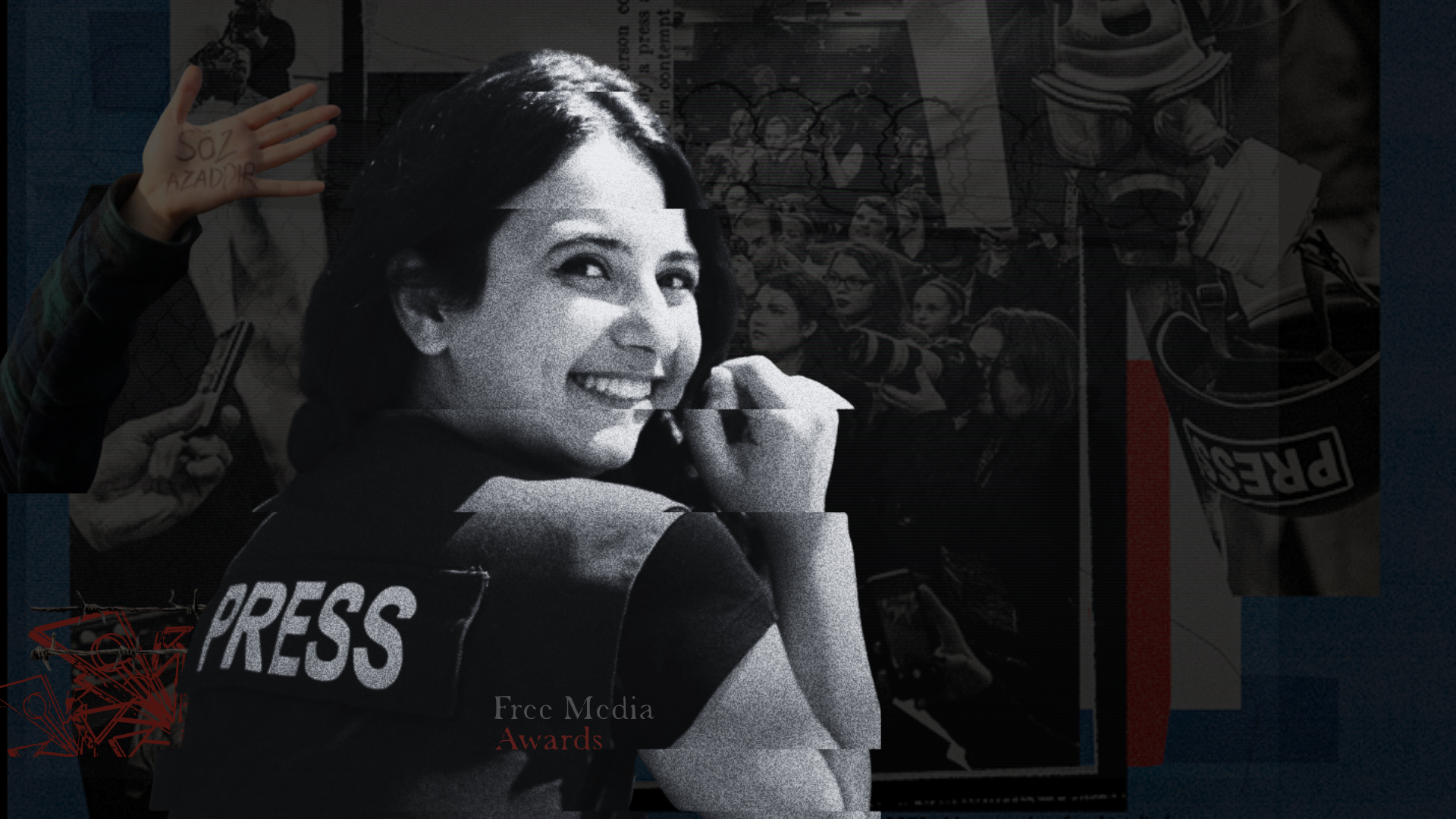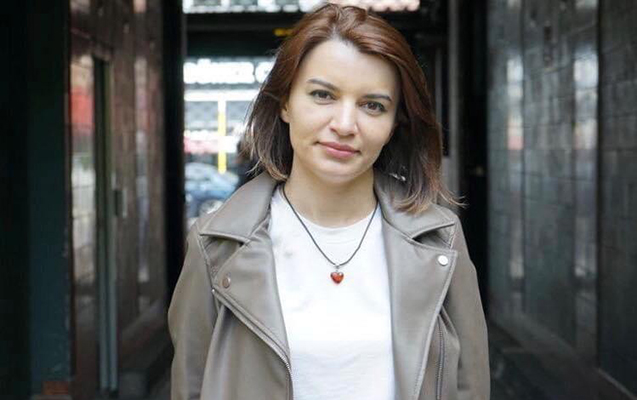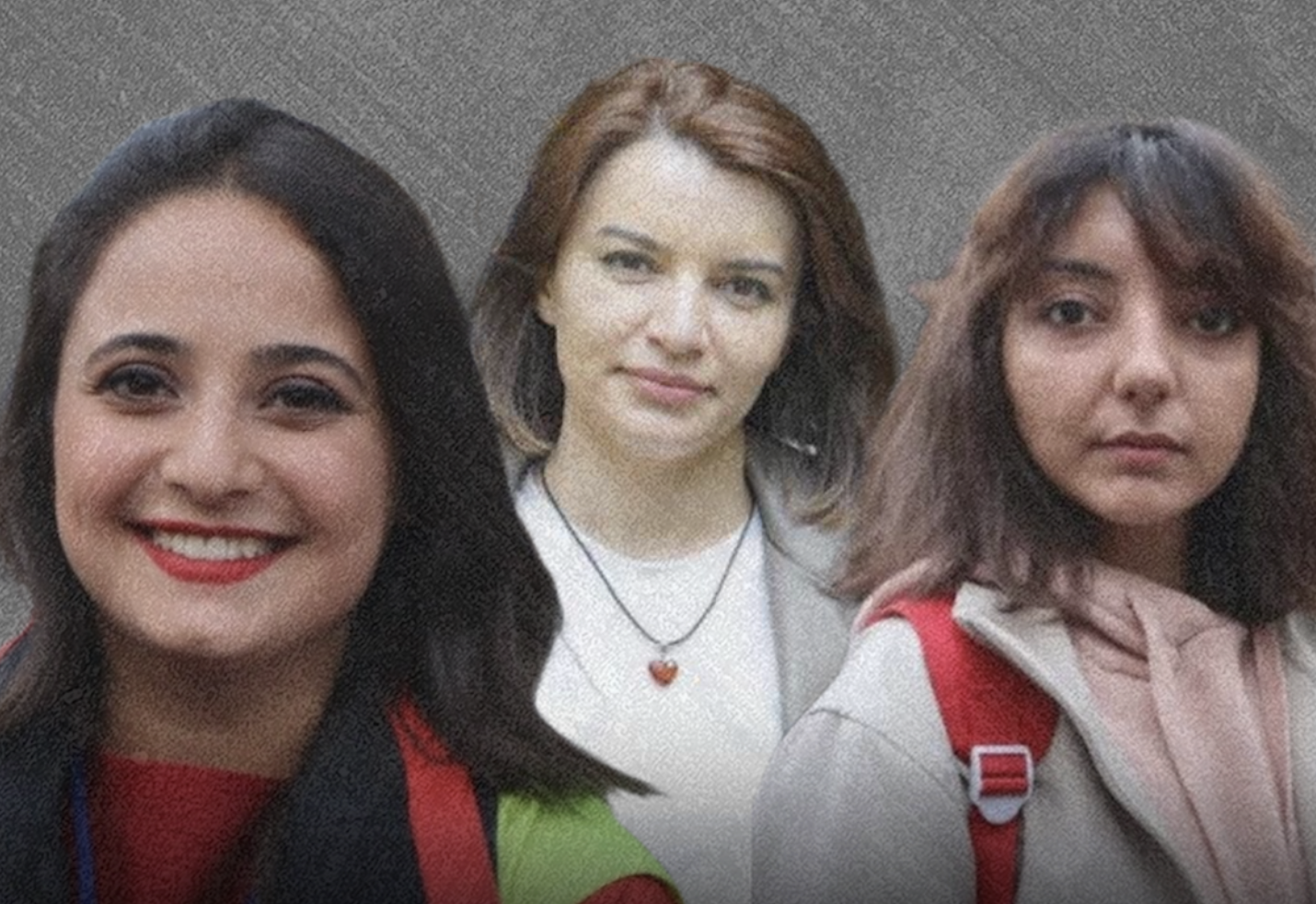Bahruz Samadov, a peace activist and researcher sentenced to 15 years in prison on charges of “high treason,” gave an interview to journalist Ulviyya Ali, who was arrested in the “Meydan TV case” and is currently held at the medical facility of the Baku Pretrial Detention Center.
In the interview, published by AbzasMedia, Samadov shared views on the reasons behind his imprisonment and his personal experiences.
Samadov said he staged a five-day hunger strike, calling it both physically and emotionally exhausting. “Hunger wears you down. After three days, your body weakens, your sleep cycle is disrupted, your eyes hurt, and your hands tremble. People take this step out of anger, out of protest against injustice,” he said, noting he ended the strike at the request of his grandmother and friends.
He believes his arrest was triggered by his academic work and speeches at international conferences. “There are always informants from the state at such events. My last speech was in Manchester, where I criticised recent political developments. For the authorities, that makes you a target. My arrest was also a response to Europe’s stance on the September 2023 events. I opposed the war, but that didn’t mean I was against a return to the territories. I was thinking ahead, aware of where caesarism would lead.”
Samadov called his harsh sentence contradictory to the ongoing peace talks. “From the beginning, I said this charge contradicts the state’s own interests. Charging an academic with treason and subjecting him to torture damages the country’s reputation and undermines the so-called peace agenda. The exact reason for the accusation remains unclear. I’m neither a politician nor someone with a mass readership. I’ve simply been a radical critic. At the State Security Service, I was told the issue was Armenians citing my articles.”
Discussing his time in prison, Samadov said it has been traumatic but also led to a wave of solidarity. “It took away my happy life in Prague and the people I loved. But international support, petitions by academic communities, and my friends’ solidarity give me strength. I’m especially grateful to Jamil Hasanli, Arif Yunus, Altay Goyushov, Gulnara Mehdiyeva, the Feminist Peace Collective, Emrah Tahmazov, Giyas Ibrahim, Ahmad Ismayilov, Aykhan Zayidzadeh, and Ulvi Alakbarzadeh. On my birthday, friends lifted my spirits and sent a cake. Belarusian artist Darya Cemra dedicated several pieces of art to me, which deeply moved me. Her support through her art and letters meant a lot. I’ll never forget these people.”
Samadov said he has been subjected to smear campaigns both inside and outside prison, and was even assaulted for requesting a religious book. “As for those speaking against me, I call on them to act with conscience. Baku TV called me a ‘junkie,’ spreading vile slander. These people have simply lost all sense of decency.”
Addressing accusations of being “pro-Armenian,” Samadov said his writings actually focused on the traumas of Azerbaijani society caused by war. “To those accusing me of being ‘pro-Armenian,’ I suggest they actually read my articles. I’ve written openly about the traumas suffered by the Azerbaijani people.”
What affected him the most, he said, was being physically assaulted for requesting a Bible. “The worst thing was being savagely beaten just because I asked for a Bible. While being beaten, I prayed to God and remembered someone I loved.”
He said he came to Baku only to visit his elderly grandmother, but ended up “in the clutches of forces that wanted to destroy” him. “I was just visiting to see my grandmother, to eat and relax.”
Samadov noted that the three women who initially supported his grandmother — Aytaj Tapdig, Aysel Umudova, and Ulviyya Ali — have all since been arrested. He called this entire period a severe ordeal: “So many bad things happened that I attempted suicide in a state of emotional shock after returning from court. I wanted my death to be a sort of final statement about the state of the country. At the last moment, Taryel Abdullayev saved me. I’m glad he did.”
The peace activist said he had long given up on engaging in political struggle in Azerbaijan, and that sometimes the best strategy is simply to leave. “You can’t be a prophet in your own land. I’ve given up on fighting inside the country. Sometimes the best strategy is to leave. Just as Moses led his people out of Egypt, I advise those who think like me to do the same.”
At his final court hearing, Samadov referenced Socrates, Jesus’ crucifixion, the Athenians, Pilate, and Azerbaijani philosopher Heydar Huseynov. But he said only his lawyer was listening. “I realised no one was paying attention — only my lawyer, Zibeyda khanum, was listening. That’s a metaphor for people like us in this country: we speak, one person listens, and then we’re imprisoned.”
Samadov said his wishes have become simpler during his time in detention: “Now, all I want is for my grandmother to stay healthy and for my friends to be released. I don’t want to spout empty optimism.”
He also said he often thinks of his happy days in Prague and the people he once loved: “I often remember Prague and the people I once loved. There were also people I hurt in the past — I’d like to take this opportunity to apologise to them.”
Samadov said he hopes to survive prison but will never forget the trauma or the punishment he received for advocating peace: “I hope I’ll get out alive, but I’ll never forget the trauma, the way the state treated me like a terrorist, or that I was punished for my peaceful stance.”
He said he also forgives those who testified against him: “I forgive those who hate me, the acquaintances who testified against me, and the friends I expected support from who stayed silent.”
During his 10 months in prison, Samadov read over 100 books. But he said it’s impossible to carry out serious research under such conditions: “Academic work requires investigation. Solitary confinement is extremely difficult. I often can’t fall asleep at night. Eventually, I fall asleep thinking about some happy memories from Prague.”
He ended by saying he still hopes to return to his academic work someday: “I hope I’ll be able to return to academic work one day.”
At the end of the interview, Ulviyya Ali asks Samadov:
“Why do you think the government intensified its repression against civil society after the Karabakh war?”
Samadov responds:
“After the victory, the government no longer faced a legitimacy problem, and politics essentially vanished. Only the media and a few individuals remained. Silencing them allowed the government to achieve complete discursive dominance. Nothing was left except banal nationalism and consumerism. I saw this coming back in 2020 — it’s precisely why I opposed the war.”
***
Bahruz Samadov was sentenced to 15 years in prison on June 23 by the Baku Serious Crimes Court, in a closed-door hearing chaired by Judge Elnur Nuriyev.
The prosecution had sought a 16-year sentence. Samadov attempted suicide shortly afterwards.
He was detained on August 21 last year by officers of the State Security Service. His home was searched, and his personal belongings and computer were confiscated. He was charged under the article of high treason.
Independent journalist Ulviyya Ali (Guliyeva) was arrested on 6 May this year as part of the “Meydan TV case”.
She is charged under Article 206.3.2 of the Criminal Code (smuggling committed by a group of persons in advance collusion). Ali denies the charges and says she was arrested for her journalistic work.
According to local human rights groups, there are currently over 370 political prisoners in the country. Government officials reject these claims, saying all detainees are being held accountable for specific criminal acts.
Translated by Javid Agha







